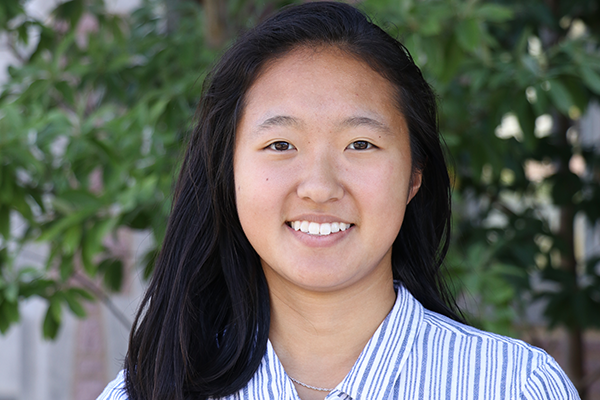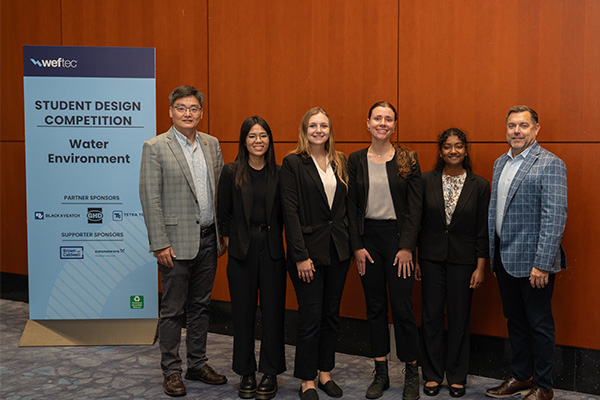Mentors help build stronger scholars in the lab
Maggie Yang, a junior majoring in biomedical engineering, shares how mentors in the lab of Spencer Lake helped her become a more confident and skilled researcher

At the McKelvey School of Engineering at Washington University in St. Louis, students and researchers can take advantage of opportunities to connect with accomplished alumni, expert researchers and leaders in industry.
In celebration of National Mentoring Month, we asked Maggie Yang, a junior majoring in biomedical engineering, to share her experiences performing research alongside her mentor, Leanne Iannucci, a doctoral student, in the lab of Spencer Lake, associate professor of mechanical engineering & materials science.
Why did you decide to work in the Lake lab?
When I thought about my plans for after graduation, I didn’t know if I wanted to work in research or industry. I’d been interested in sports medicine and orthopedics because of my experiences with injuries and rehabilitation while playing tennis. I came across Dr. Lake’s lab and found that his work overlapped with my interests.
Dr. Lake was extremely helpful in directing me to apply for funding from the National Science Foundation, which allowed me to work in his lab. Once I finished my summer fellowship, I decided to continue in fall 2022. I had a great summer experience and was interested in another research project in his lab.
What type of research did you take part in?
For the summer fellowship, I designed and motorized a polarization state generator as a contribution to the research done by my mentor, Leanne Iannucci (a doctoral student in biomedical engineering). I developed my skills in product design, computer-aided design and prototyping. For my independent study in the fall, I worked with Shawn Pavey, a doctoral student, on a tendon explant project where I analyzed cell viability using LIVE/DEAD staining and confocal microscopy.
What was it like working with Dr. Lake and the other researchers?
Dr. Lake created a lab environment that was positive, supportive and collaborative. There were weekly lab meetings where lab members demonstrated curiosity and offered advice for the different projects. My mentors were very helpful and taught me a great deal of concepts and skills. I had a plethora of questions for each project, and I was encouraged to ask them since that was my way of learning.
What did you learn from your experience?
I learned how to be successful in a fast-paced environment where adaptation and asking questions were important skills. I was fortunate to have independent projects, and I learned how to effectively identify issues and find solutions. I was able to confidently conduct my own projects while also knowing when to seek advice.
On the technical side, I learned how to use Arduino microcontroller kits to control stepper motors.
What challenges did you face in the lab and how did you overcome them?
During my summer fellowship, part of my project involved using Arduino. I struggled with it in the beginning. To overcome it, I had to be persistent in reading manuals, watching instructional videos and experimenting with circuits on Tinkercad, an online modeling simulation program.
I always had questions for Leanne. She told me that learning Arduino was like learning how to fly: The mother bird just pushes the baby bird off the edge and says “go.” And learning how to ask questions was necessary to build trust in myself so that I could achieve my goals.



